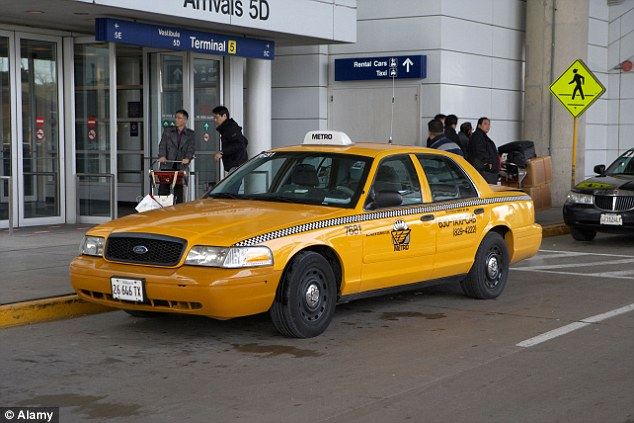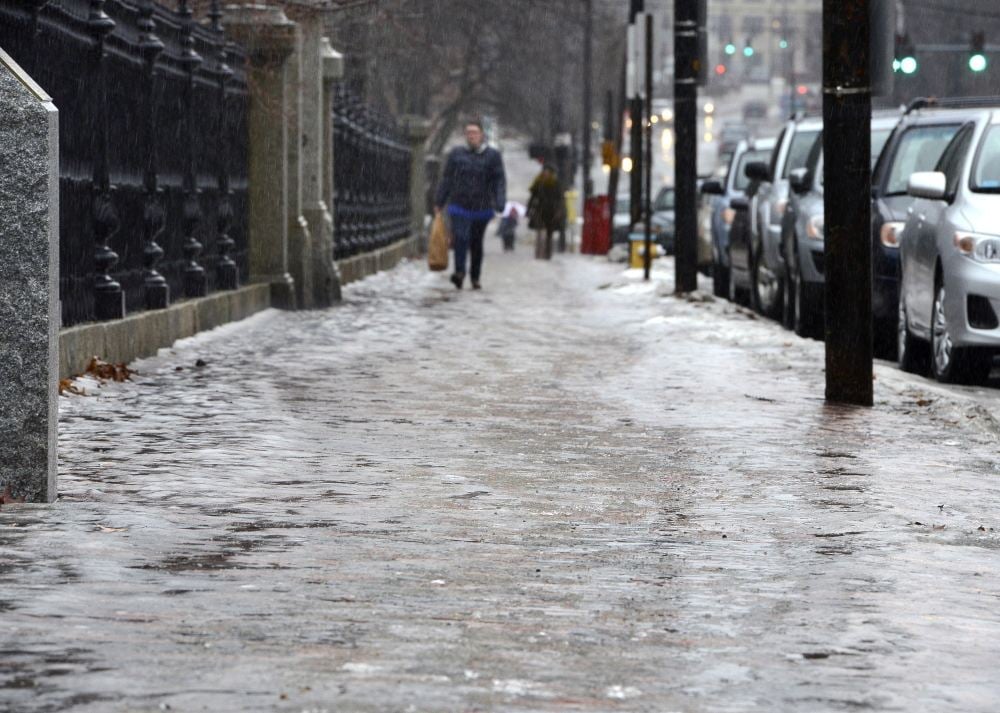 This is not a review in the commonly used sense of the word. Nonetheless, I am literally reviewing a piece of art from the past, in order to recommend it to anyone reading. So, one can call it a review of a sort.
This is not a review in the commonly used sense of the word. Nonetheless, I am literally reviewing a piece of art from the past, in order to recommend it to anyone reading. So, one can call it a review of a sort.
A little background information: I bought a subscription to HBO about a year ago, with the expressed purpose of watching Game of Thrones. When I finished the most recent season of that, I debated unsubscribing; sixteen dollars monthly felt reasonable for seven seasons of one show, but after that was over, it would have been pointless to keep paying if I wasn’t going to be watching anything else. Upon browsing the other offered media in HBO, I realized I couldn’t; there was too much critically acclaimed content there.
For all you readers out there who don’t have very much time for excessive binge watching, I highly recommend HBO above Netflix, Hulu, et al. (if you don’t have a tv with cable, HBONOW is the mobile/browser version of it, for people like me who watch everything on their phone or computer). I know sixteen dollars a month seems steep, but for the amount of great content it comes with, it’s a very solid investment. Sure, it doesn’t have fourteen seasons of NCIS, but on the other hand, it doesn’t have fourteen seasons of NCIS; while HBO doesn’t have every season of all the most popular shows, it does have a concentrated little pool of high-quality series and films, so you will never be as overwhelmed as you are with Netflix. And in that pool, along with Last Week Tonight With John Oliver, Boardwalk Empire, Westworld, The Sopranos, and La La Land, is where I discovered The Wire.
While it is regarded by most critics and film scholars as one of the greatest television shows of all time, it seems to be one of those works that everyone has heard of, and has heard good things about, but few have actually seen. In fact, during its entire airing from 2002 to 2006, it had poor viewership and ratings. Only retrospectively has it received the attention it deserves.
In 2002, HBO aired The Wire, former Baltimore crime journalist David Simon’s virtuosic creation about the city where he spent his years reporting. The first season focuses primarily on drug enforcement (as well as trade) in the inner city, the second on workers at the docks, the third on the political structure, the fourth on the city school system, and the fifth and last on the press.
Every season exposes a different element of “the system.” In the police department, for example, all of the police have been trained to follow the chain of command and do their job according to what will move them up the ranks. The cops that try to do so-called “real police work” end up being reprimanded and punished. The higher ups prefer quick, plentiful busts that put dope “on the table” (into their stats) and leave the real major players out on the streets. The show’s title refers to the wiretaps that protagonist Jimmy McNulty and his fellow “real police” carry out throughout the show, in efforts to produce proper evidence against the people pulling the strings.
See, The Wire is an answer to all of the crime scene investigation shows that are out there; there are no high tech, sleek office places where they operate, no everyday big busts on major criminals, extremely limited resources, almost no cooperation from command, and plenty of broken rules. While in most other crime shows, in every episode the difficulty is finding the right person to put handcuffs on, most of the conflict in The Wire results from the police trying to make sure they have the proper leverage to get the key figures they want in prison for as long as possible. And most of the time, handcuffs don’t mean the bad guy won’t be back in the streets before too long.
David Simon’s portrayal of Baltimore is one filled with intricate and fascinating characters, some of whom are good and some of whom are bad, but most of whom are a delicate mix of both. Detective McNulty, who is maybe the best policeman and the only real hero in the entire city police department, and has a slew of self-destructive habits, and no respect for any authority. D’Angelo Barksdale, Kingpin Avon Barksdale’s young nephew, who has a thirst for respect within the gang but balks at the brutality of his everyday life. Omar Little, the openly gay “Robin Hood” of the streets, who wages a one-man war on the biggest gangs that occupy the streets. And my personal favorite, Reginald “Bubbles” Cousins, heroin addict, con man, and tramp, who, behind his comedic stumbling demeanor, has a heart of gold and lives a life of weakness and failure resulting in a desire to do good. And the list does not end.
As you may have noticed, the characters I listed above are from varied ethnic backgrounds, sexual orientations, and walks of life, yet all of them are men. It is true that there is a very small handful of complex women in the entire series—however, I am not one to believe that stories can’t be feminist or progressive without a sprawling world of strong female protagonists. I don’t plan on spending several paragraphs explaining how there’s a hidden feminist message in The Wire, though I probably could. But do not let the lack of female protagonists dismay you; I ask you to suspend your preemptive judgment and look at the show for what it is before declaring what it isn’t. It may not be a feminist piece to inspire the next generation of gender equality activists, but it is a gritty, lifelike window into America’s broken system, in a city decidedly east of Eden.
To go into extreme detail about every theme and idea would be as sprawling a feat as it was to create the show itself, but each season leaves you with a satisfying yet sickening burn deep within your bowels, like so many delicious and picante bowls of curry you thought you could handle. From the first episode, it becomes apparent why the show had such a weak following—it’s far too bleak for mass audiences. Any character who stands for change in the right direction, whether they wear a badge or a bandana, may end up being destroyed or corrupted by the system. It is fairly Orwellian when you think about it—and frighteningly close to reality.
Throughout every season there is this theme: no one can break the cycle of the system. Any attempts at change will no doubt result in more of the same. Every season ends with a different montage, showing all the roles established at the beginning being the same as they always were—drug dealers on corners, workers struggling to make ends meet, policemen beating on civilians, politicians lying and stealing to appease their constituents, addicts regressing, children and teachers alike being left behind by the state, and the city standing tall and gritty as ever. In The Wire, much like in our world today, the system always wins.
The Wire will make you rethink everything about the way you conduct your life, about your political priorities, about our culture wars, and about the world we live in, as well as your perceptions of who is and isn’t on your side. Much like the wiretaps that it is named after, it allows you to listen in on the real goings on in the American urban system. And while it was clearly made in a Bush Administration, post 9/11 America, it is as relevant now in 2018 as it was in 2002. After all, nothing has really changed all that much.
 This is not a review in the commonly used sense of the word. Nonetheless, I am literally reviewing a piece of art from the past, in order to recommend it to anyone reading. So, one can call it a review of a sort.
This is not a review in the commonly used sense of the word. Nonetheless, I am literally reviewing a piece of art from the past, in order to recommend it to anyone reading. So, one can call it a review of a sort.

 It has begun.
It has begun. e rows upon rows of pants. I realized however, that the array of pants being shown on the mannequins were different than what I was expecting. It seems that the skin-tight leggings and ripped jeans are leaving the scene, and vibrant, patterned, flowey pants are on the come up. To some this may just be the current trend, one that will be quickly replaced and forgotten when next month’s Vogue comes out. But to me, this is liberation. This is us, standing up and saying we WILL not wear those skin tight jeans anymore. When women started wearing pants in the 20’s, it was a huge step towards equality (and a more comfortable wardrobe.) Women’s fashion is so interesting to me, the way that it has shifted and revolutionized through history. From Corsets to poodle skirts, then bell-bottoms to jeggings, each style came with its own message. And today, in 2018, maybe comfort is the new “cool.” I think that showing such freeing styles in the media gives a positive message finally shying away from the “male gaze,” which fashion has tended to for far too long. So, ladies, stand tall and wear the pants that make you feel confident, strong, and like the bad ass activist you are.
e rows upon rows of pants. I realized however, that the array of pants being shown on the mannequins were different than what I was expecting. It seems that the skin-tight leggings and ripped jeans are leaving the scene, and vibrant, patterned, flowey pants are on the come up. To some this may just be the current trend, one that will be quickly replaced and forgotten when next month’s Vogue comes out. But to me, this is liberation. This is us, standing up and saying we WILL not wear those skin tight jeans anymore. When women started wearing pants in the 20’s, it was a huge step towards equality (and a more comfortable wardrobe.) Women’s fashion is so interesting to me, the way that it has shifted and revolutionized through history. From Corsets to poodle skirts, then bell-bottoms to jeggings, each style came with its own message. And today, in 2018, maybe comfort is the new “cool.” I think that showing such freeing styles in the media gives a positive message finally shying away from the “male gaze,” which fashion has tended to for far too long. So, ladies, stand tall and wear the pants that make you feel confident, strong, and like the bad ass activist you are. Something that is severely lacking in Young Adult novels is diversity. Meaning…there is almost none.
Something that is severely lacking in Young Adult novels is diversity. Meaning…there is almost none. I don’t know how I feel about rainy days,
I don’t know how I feel about rainy days, the side walk is icy today.
the side walk is icy today.